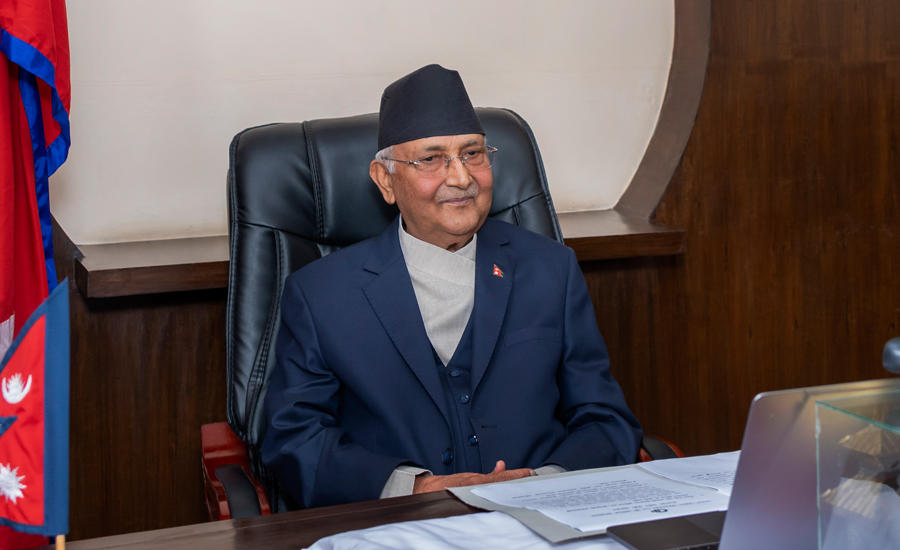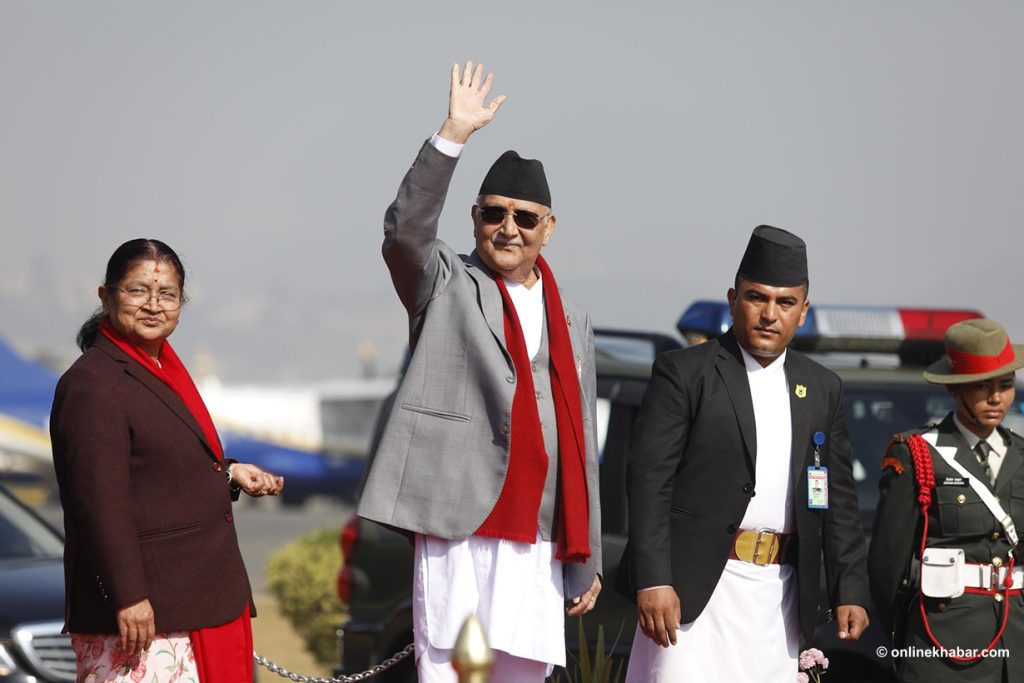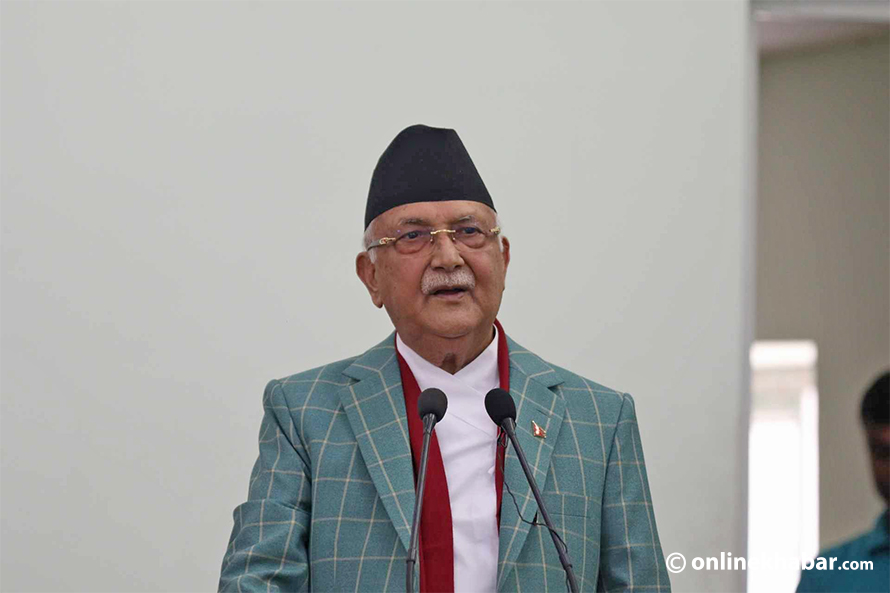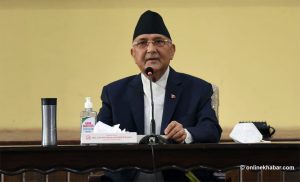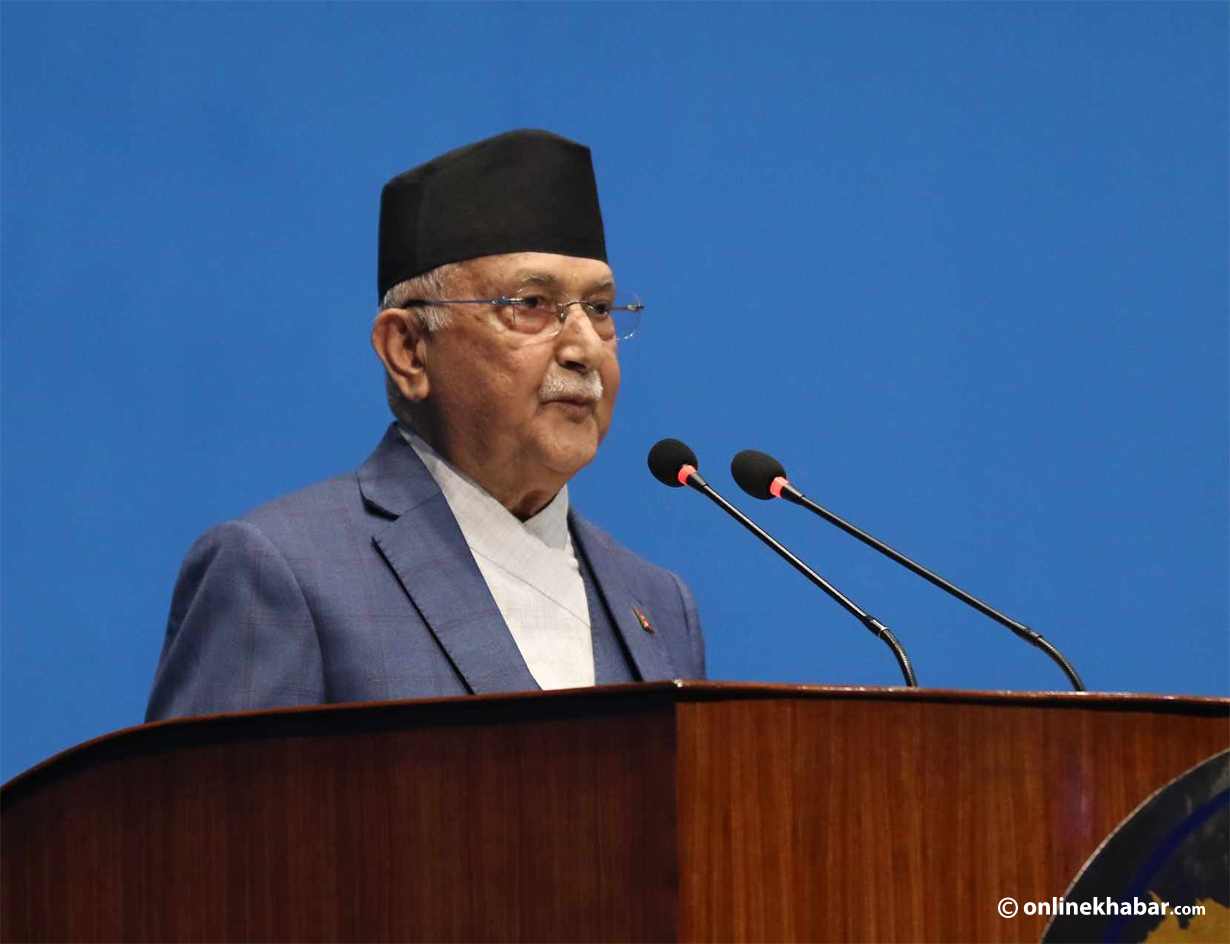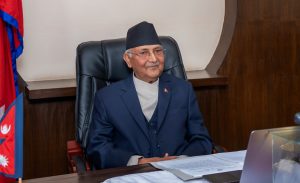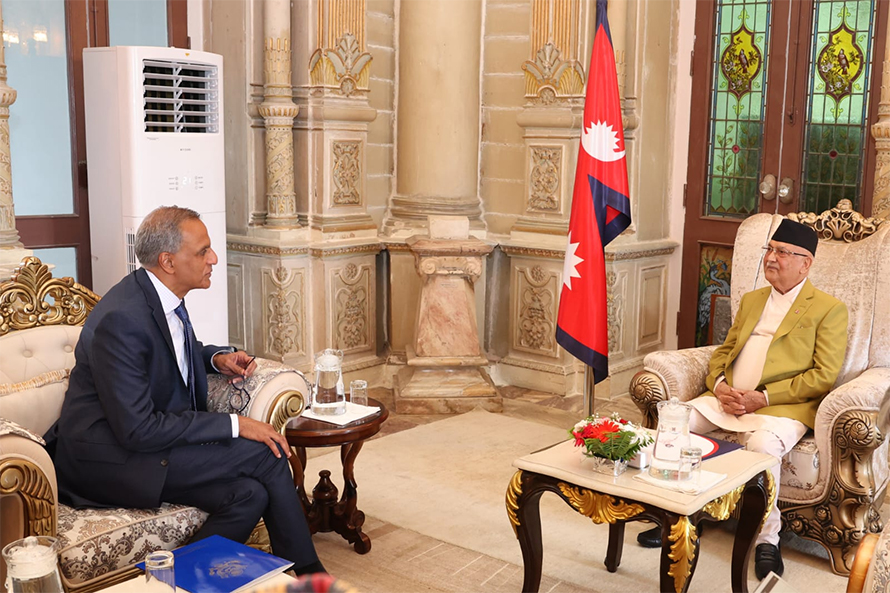When a Twitter user defended Prime Minister KP Sharma Oli’s decision to dissolve the House of Representatives, another user commented that unless the prime minister’s cadres, who acted like wasps (aringals), stopped glorifying him, the country would never move forward. Another user called the prime minister’s supporters ‘Hanumans’ pointing out how many were cheering PM Oli as he cracked a joked about Madhav Kumar Nepal and Pushpa Kamal Dahal at a party meeting.
The words ‘aringal’ and ‘Hanuman’, in the past year, have been widely used to describe people who support PM Oli. Some had even started calling them the PM’s ‘cyber soldiers’.
Former Home Minister Bhim Rawal recently commented how PM Oli’s cyber force had tried to defame him. In reply, NCP Oli faction’s leader Mahesh Basnet announced that his party indeed needed a cyber force to ensure that the party’s image was not tarnished by lies spread by the opposition.
Why cyber soldiers?
“We have had the Young Communist League (YCL) and Youth Force before. In today’s age, we need a new force. A cyber force which will ensure that fake news doesn’t alter people’s mindset,” said Basnet speaking at a party event in Beni on Tuesday.
Basnet, during the meeting, instructed the party cadres to form a force at the district level and added that the force would be a formal part of the party under its youth wing.
“The force will be mobilised by the youth leader of a district who will be selected by the youth wing. The aim is to clear people’s misconception about the prime minister and his party,” Basnet tells Onlinekhabar.
While this might be a new phenomenon in Nepal, cases like this are prevalent throughout the world. Even large democracies of the world like the US and India have had similar forces. There have been reports about how state-sponsored forces are manipulating public opinions on the internet.
These forces in the West, who are referred to as trolls, spread disinformation on social media and try to influence the internet’s information system. An example is the mobilisation of Russian-sponsored trolls who aggressively exploited social media to influence the 2016 US elections.
The Bharatiya Janata Party in India has similar forces that are highly nationalist and have Hindu right-wing views. These trolls, tend to attack anyone who appears to be against the government, the BJP and the nation. They not only attack the public but also well-known personalities including journalists like Barkha Dutt and Rajdeep Sardesai who experts say are among some of the most targeted in this country.
The ruling NCP is planning to do something similar. The cyber force will be led by Basnet who is the party’s in-charge for the National Youth Association, and Ramesh Paudel, the chair of the association.
“We don’t want fake claims from the opposition to spread on social media. These fake claims will tarnish the party’s image among the general public,” says Paudel. “The role of the force will be to provide the public with correct information about the role of the party/government and the work it is doing.”
This is the first time that a cyber force like this has been formed by a party in Nepal. Previously, former CIAA chief Lok Man Singh Karki and IGP Sarbendra Khanal had been accused of mobilising the cyber forces.

Is it legal?
The inclusion of the cyber force by Oli-led faction is cause for concern, warn experts. Many are concerned with the use of the term ‘cyber sena’ (cyber soldiers). Information technology expert Narayan Koirala says it is wrong that a political party formed such a force from within the party.
“Had the force been formed to protect Nepali information from going abroad, it would have been a good thing. But, this seems like for the sole benefit of the political party, which is wrong,” says Koirala.
He says that it is illegal to mobilise such a force that did not work on the data security of the country. “I think we should not be taking this lightly,” he says.
Advocate Baburam Aryal says that the reason that the mobilisation of such a force is wrong is it is made to attack the public who speaks against the government.
“The law does not allow for this. This sounds like a campaign to spread lies, not to stop lies,” says Aryal. “If such a thing is done, it is punishable by law.”
He added that it was wrong to use the internet to attack people in such a planned manner and it could be punishable by law.
Political analyst Narayan Dhakal says this is the PM’s way of self-defence when his party is being attacked by all after the decision to dissolve the House of Representatives. He says this gives out the message that the prime minister is scared.
“He must have felt that that state bodies did not do what he wanted them to do. Maybe that is why this force is being formed,” says Dhakal.
Another reason analysts say that the Oli-led faction is planning to deploy such a force is the ruling NCP is on the verge of a split.
This is not the first time such a force has come to life in the Oli-led party. When Basnet was the chief of the CPN-UML youth wing in 2008, he had encouraged young party cadres and formed a ‘youth force’ to fight against other parties, in particular the Maoists’ YCL. When Oli became the prime minister for a second time, he told his cadres to become ‘wasps’. Such comments were highly criticised by analysts and the public.
Many say that the PM is intolerant towards others having a different opinion than his. A politician compares this move to the Panchayat system introduced King Mahendra Shah.
“Oli’s strategy seems similar to that of Mahendra,” says the leader on the condition of anonymity. “Mahendra too dissolved the parliament in 1960 and formed a youth wing who spoke and spread the message he wanted to disseminate amongst the public. That wing countered everything the public said against the government.”




